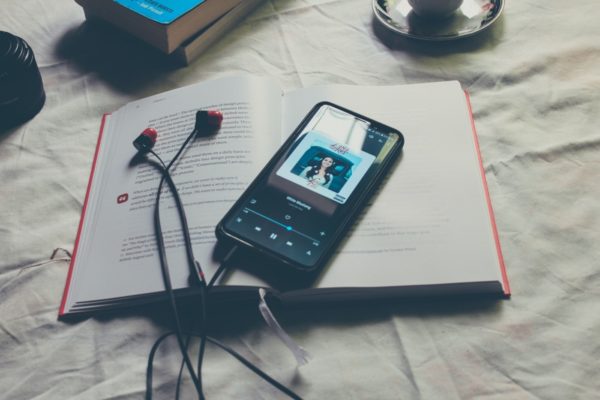Listening to music during revision doesn’t provide the answers
The prospect of exams are beginning to lurk within our minds as the academic year gets nearer to drawing to a close. Though a long Easter break is ahead, revision and deadlines are not far away. Unless you are the kind of person to complete everything the night before, this process will inevitably involve revision. With that comes the usual debate about the best, and worst, methods of revising. Highlighting alone won’t cut it I’m afraid, and scrolling through social media every five minutes is a recipe for disaster. One of the most popular debates is whether listening to music helps or hinders revision.
Every time I visit the library, a large proportion of people I sit near have headphones in, typing away while mentally existing in another place. No doubt the headphones are in place not simply to avoid socialising with others but to actively listen to music. Sometimes I can even hear what they are playing, which is, sadly, often not to my taste. Cultural interests are subjective after all.
Aside from personal preferences, can listening to music ever be a helpful studying aid? Most studying involves reading lots of text, writing key information, attempting to memorise and articulate arguments for that all important exam. Instinctively, I would think listening to music isn’t beneficial in that endeavour, not least if the songs contained lyrics. Whenever I’m writing and listening to something with audio, I always eventually end up writing what I’m hearing. Instead of focusing on the academic content, surely one’s attention is drawn to the audible medium.
In order for music to show any signs of being effective, it has to allow an individual to focus intensely on their studies rather than the lyrics
There has been plenty of research carried out on this matter, and the findings show mixed opinions. Music certainly can have some benefits, which leads me to question whether people should listen to it during exams. If they have spent their whole revision period tuned into some Oasis playlist that has guaranteed them productive revision sessions, it doesn’t seem too out of the ordinary to suggest the same should be allowed for answering questions. According to a source at The Guardian, listening to music can be motivating and help to improve people’s mood. In a time when exam stress and mental health issues are generally on the rise, this can only be a case for optimism.
However, a study carried out by Foundation Education suggests otherwise. They back up a number of my initial thoughts, including viewing music as distracting by affecting one’s comprehensive skills. This is anything but helpful for overall academic performance. They sight a clear clash between the noise of the music and the words being read or written. In order for music to show any signs of being effective, it has to allow an individual to focus intensely on their studies rather than the lyrics.
You may view the alternative as listening to classical music. The radio station Classic FM certainly increases in popularity with students around the exam period, with an almost 50% increase in the number of listeners between 16 and 25 in April, May and June over the last three years. I remember in a maths class being told we could either work in silence or with classical music in the background. There has long been the assumption that, while lyrical music may be distracting, classical music can only stimulate the mind and thus improve the final results.
I’d let music be a part of the reward for completing a study session, instead of being part of the session itself
Even this is now being debated, however, as some argue that the ‘Mozart effect’ is exaggerated. Although classical music can make someone feel more mentally engaged, any form of music isn’t helpful for learning new information. Music takes up space in our minds used to process information, meaning that we can give less attention to our work. A study by Cardiff Metropolitan University found that students who revised in quiet environments performed more than 60% better than those listening to lyrics, while students listening to any form of music were more distracted.
Although it can be argued that relaxing music can reduce stress, it is possible that intense music has the opposite impact. It is all about balance and knowing what is good for us. Maybe the answer is to appreciate what the different senses offer us one at a time. Celebrate the joy of eyesight when reading information, then later enjoy the sound of music and audio. While music, podcasts and radio can help to pass the time when completing domestic tasks or on a commute, serious exams require serious concentration. I’d let music be a part of the reward for completing a study session, instead of being part of the session itself.

Comments